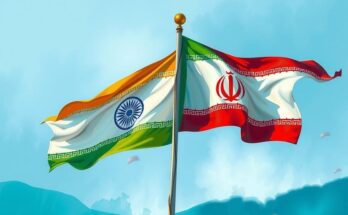Iraqi PM announces the death of Islamic State leader Abu Khadija. Libyan town of Tajoura unites for Ramadan bazin. Druze clerics undertake pilgrimage to Israel amid opposition. Hamas proposes to release hostages, met with skepticism from Israel. Sudan suffers from paramilitary shelling; PKK struggles with disbandment negotiations amid Turkish opposition.
Iraqi Prime Minister Mohammed Shia Al-Sudani announced the death of Abdullah Maki Musleh Al-Rifai, also known as Abu Khadija, the leader of the Islamic State in Iraq and Syria. He described Al-Rifai as one of the most dangerous terrorists in both Iraq and globally. The elimination of this militant came through a coordinated effort by Iraqi security forces and a US-led coalition aimed at combating the terrorist group.
In a separate event, the town of Tajoura in Libya is known for its community spirit during Ramadan, where residents unite to prepare bazin, a cherished dish for iftar. This collaborative effort involves various residents contributing by making bread or distributing food to those in need. Despite challenges faced due to ongoing violence in Libya, the preparation of bazin remains a testament to the community’s resilience and shared culture.
In another significant development, a group of Druze clerics from Syria undertook a pilgrimage to northern Israel, crossing the armistice line amidst mixed reactions from the community. While approximately 60 clerics were escorted to meet their spiritual leader and visit important religious sites, this visit faced strong opposition from other Druze in Syria amid concerns over loyalty and ties to Israel.
Hamas announced its agreement to release an American-Israeli hostage and the remains of four dual-nationals in captivity. However, Israeli Prime Minister Benjamin Netanyahu’s office expressed skepticism regarding the commitment of Hamas, suggesting it may be a tactic to influence ongoing negotiations. The backdrop includes the recent ceasefire allowing a limited exchange of hostages but ongoing pressure remains on Hamas regarding further conditions.
Furthermore, El-Obeid, has been suffering from relentless shelling by Sudanese paramilitary forces, which recently resulted in civilian casualties. As conflict continues in Sudan, the situation escalates, revealing a humanitarian crisis resulting from the struggle between the army and the Rapid Support Forces. The conflict, which began as a power struggle, has led to major displacements and food shortages across the nation.
Finally, the PKK, a Kurdish militant group, stated it is currently unfeasible to safely conduct a congress for its dissolution, counteracting the call from its founder, Abdullah Ocalan, to disarm. The group’s co-leader indicated that ongoing Turkish military operations pose significant risks to any meeting regarding dissolution, complicating efforts toward peace negotiations for the Kurdish community in Turkey.
The article highlights significant events across the Middle East, including the death of a key Islamic State leader in Iraq, community resilience in Libya during Ramadan, a controversial pilgrimage by Syrian Druze clerics, Hamas’s tentative offer regarding hostages amid skepticism from Israel, ongoing violence in Sudan, and challenges facing the PKK in Turkey. These events illustrate the complexities and ongoing struggles within these regions, emphasizing the interplay of conflict, community, and humanitarian issues.
Original Source: www.arabnews.pk




